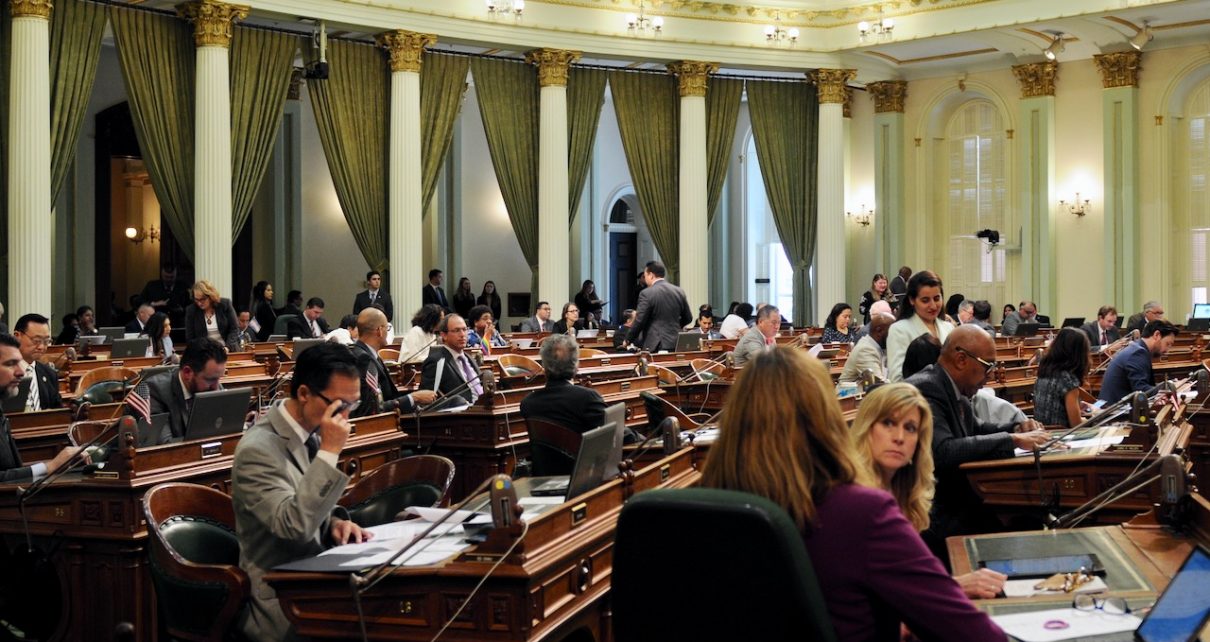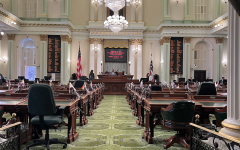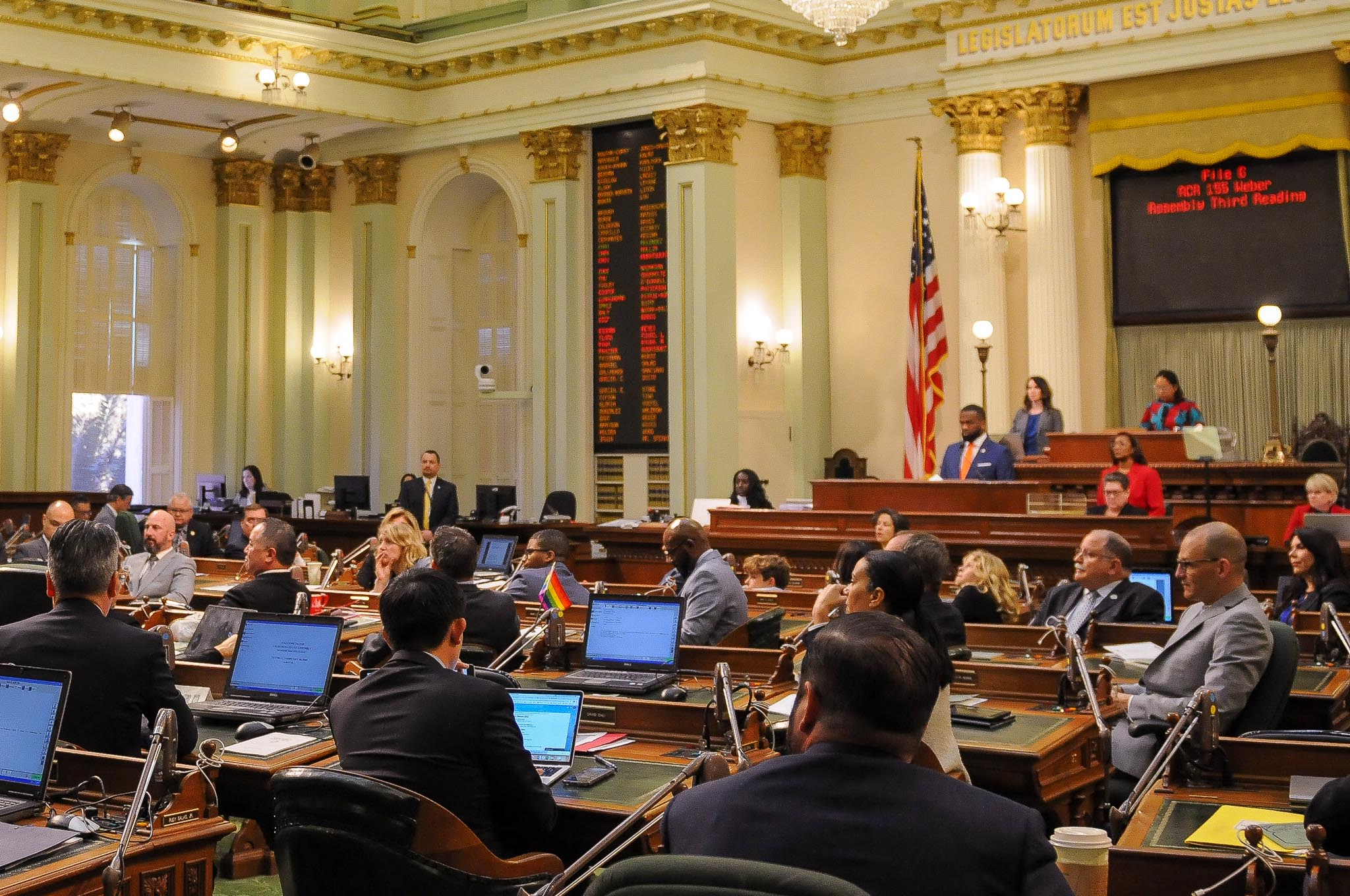
California State Assembly Chamber. (Photo: Kevin Sanders for California Globe)
Frequently Asked Questions about Joint Rule 10.5 and California Fiscal Bills
What does ‘expenditure of state money’ mean?
By Chris Micheli, March 20, 2024 5:45 am
What does Joint Rule 10.5 of the California Legislature’s Joint Rules provide? JR 10.5 specifies guidance to the Office of Legislative Counsel (OLC) when determining whether a bill should be “keyed” as a fiscal bill. The “keying” of a bill is done by the drafting attorneys at OLC.
What happens if a bill is keyed fiscal? If the OLC determines that a bill is “fiscal,” then the measure will be re-referred to the Appropriations Committee in each house.
What happens if a bill is not keyed fiscal? If the OLC determines that a bill is not fiscal, then the measure will be sent only to a policy committee(s) for hearing (unless the Appropriations Committee requests from the Rules Committee and receives the bill).
What is the text of Joint Rule 10.5? JR 10.5 states in full:
Rereferral to Fiscal and Rules Committees
10.5.A bill shall be rereferred to the fiscal committee of each house when it would do any of the following:
(1) Appropriate money.
(2) Result in a substantial expenditure of state money.
(3) Result in a substantial increase or loss of revenue to the state.
(4) Result in substantial reduction of expenditures of state money by reducing, transferring, or eliminating any existing responsibilities of any state agency, program, or function.
Concurrent and joint resolutions shall be rereferred to the fiscal committee of each house when they contemplate any action that would involve any of the following:
(1) Any substantial expenditure of state money.
(2) Any substantial loss of revenue to the state.
The above requirements do not apply to bills or concurrent resolutions that contemplate the expenditure or allocation of operating funds.
This rule may be suspended in either house as to any particular bill by approval of the Committee on Rules of the house and two-thirds vote of the membership of the house.
What is the first instance when a bill will be keyed “fiscal” by OLC? A bill that appropriates money is a fiscal bill. This is easy to ascertain because the language of the bill would actually appropriate a specified sum of money.
What is the second instance when a bill will be keyed “fiscal” by OLC? A bill that results in a “substantial expenditure of state money” is a fiscal bill.
What does “expenditure of state money” mean? While there is not a definition of this phrase, on occasion the OLC determines that a bill will not result in the expenditure of state monies under a proposed law change. For example, a department’s workload will remain the same with additional cases being addressed when the courts receive them.
What is the third instance when a bill will be keyed “fiscal” by OLC? A bill that results in a “substantial increase or loss of revenue to the state” is a fiscal bill. This type of bill is relatively easy to determine, such as a tax bill that creates a new tax credit or exemption (i.e., that results in loss of revenue) or a bill that repeals a tax credit or exemption (i.e., that results in an increase of revenue).
What is the fourth instance when a bill will be keyed “fiscal” by OLC? A bill that results in reduction of expenditures of state money relating to a state agency program or function is a fiscal bill. Such a measure should be easy to determine because the bill would specify that it reduces, transfers or eliminates an existing program, agency or function of the state.
Can JR 10.5 be suspended? Yes, this rule may be suspended in either house for a particular bill by approval of the Committee on Rules of that house and two-thirds vote of the membership of that house.
- Corporations Commissioner Powers - February 27, 2026
- Death Deeds in California - February 27, 2026
- Sources of Law - February 26, 2026




